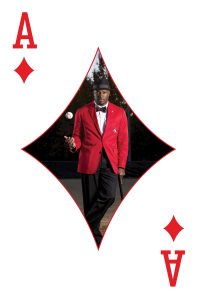 To a starving client, every hitting coach is a good one. But there are ways to separate yourself from all of the others. The goal is to inspire. It’s not about winning or losing, it’s about making your clients – and yourself – better.
To a starving client, every hitting coach is a good one. But there are ways to separate yourself from all of the others. The goal is to inspire. It’s not about winning or losing, it’s about making your clients – and yourself – better.
There are eight things that make us better: conviction, passion, character, grit, habit, knowledge, skill and resources.
And being a great coach is about outcomes. Here are six examples great coaches must follow:
1. Philosophy not Sayings
A philosophy is a system of thought and beliefs based on principles. My Diamond Directors develop philosophy is simple: “Practice prepares you for games and games prepare you for practice.”
This philosophy governs everything I do in my Hitting Lab, 3K Group training, etc.
One of my principles is that my hitters understand how to hit, so that they can do it, teach it and share it.
Sayings often are trite (overly used statements) that aren’t actionable. You can’t do anything with “work hard” other than being motivated for a moment equivalent to a sugar rush from candy.
2. Investment not Cost
“Lots of people understand the cost of most things and the value of a few things.” – C.J. Stewart
Purchasing a vehicle for many people nowadays is an investment if they drive for Uber. There’s even an app called Turo that allows you to rent your vehicle to others.
Training with me is an investment, because I possess a system. My Skill Build Drills are sequential and simple. When people invest in my services, whether they’re being assessed, building habits, converting habits to skills or just maintaining what they have, they want a physical and emotional return. They want outcomes, and there are promises I can make and deliver on for my clients.
There is nothing I can offer you through Diamond Directors that has a cost. It’s all an investment. For me, cost is transaction of cash only.
3. Training not Practice
I believe that training only occurs when there’s a system present and sequential Skill Build Drills that are simple to execute under stress.
A system is connected things, and the things I have connected sequentially are:
- Philosophy
- Methodology
- Phases of development
- Training without equipment
- Learning styles
- Character development
- Content
- Homework
- Accountability
- Plan for the end
There are parts of the swing that must be understood and simple, supported by simple and sequential Skill Build Drills. Adding stress in the spring is best. Remember your basics:
- Stance/Load
- Timing
- Tempo
- Tracking
- Approach
- Contact
- Extension/Finish
Practice is a part of training or a stand-alone. If it’s not a part of a system with sequential and simple Skill Build Drills, it stands alone as an activity forcing your development to be based on the twins – Luck and Chance.
4. Intelligent Work not Hard Work
I define intelligence as knowing what to do and the physical ability to do it. Training and intelligence can be best understood when you see the Navy SEALS and CIA (Central Intelligence Agency) working together to take down an enemy. That said, my clients are challenged and charged to work intelligently rather than hard. Hard work makes you tired.
5. Submission not Competition
It’s alright and often career saving to submit to the teaching of another coach, rather than trying to compete against them. I define competition as at least two people making each other better having nothing to do with winning or losing. This is a humble, respectable and professional act of submission.
6. Conviction not Comparison
As a a young coach in my early 20s, I often compared myself to other coaches to try to make myself seem better. My convictions as a selfish, egotistical and ignorant coach was exposed by people who cared about outside of the coaching circle and caused me to change. I was suffering from people not acknowledging me for my contributions to individual players, teams and the game as a whole. I was a hammer, and other coaches were nails. My conviction has lead me to judging myself based on the fruit of the spirit found in Galatians 5 – I compare my action to that rather than another man.
Remember: Intelligence trumps being smart.
For more information, visit www.diamonddirectors.com today. Also, check out our Digital Magazine.
BIO
C.J. Stewart has built a reputation as one of the leading professional hitting instructors in the country. He is a former professional baseball player in the Chicago Cubs organization and has also served as an area scout for the Cincinnati Reds. As founder and CEO of Diamond Directors Player Development, CJ has more than 12 years of player development experience and has built an impressive list of clients, including some of the top young prospects in baseball today. If your desire is to change your game for the better, C.J. Stewart has a proven system of development and track record of success that can work for you.

Leave a Reply